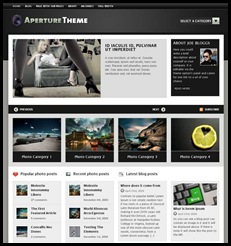Should everyone have a blog? No.
WHY BLOGGING IS NOT FOR EVERYONE.
It’s like everyone wants to run a blog, wants to have a blog, has a blog, needs a blog… the list is endless. I used to think having a blog is essential to one’s website success.
We need to fully understand why it is not necessary for everyone to have a blog. After all, not all fingers are equal. So, let’s start from the basics.
WHAT IS A BLOG?
A blog is a type of website, usually maintained by an individual with regular entries of commentary, descriptions of events, or other material such as graphics or video. “Blog” can also be used as a verb, meaning to maintain or add content to a blog.
Many blogs provide commentary or news on a particular subject; others function as more personal online diaries. A typical blog combines text, images, and links to other blogs, Web pages, and other media related to its topic. The ability of readers to leave comments in an interactive format is an important part of many blogs. Most blogs are primarily textual, although some focus on art (Art blog), photographs (photo blog), videos (Video blogging), music (MP3 blog), and audio (podcasting). Micro blogging is another type of blogging, featuring very short posts. (Wikipedia)
A blog is a personal diary. A daily pulpit. A collaborative space. A political soapbox. A breaking-news outlet. A collection of links. Your own private thoughts. Memos to the world.
In simple terms, a blog is a web site, where you write stuff on an ongoing basis. New stuff shows up at the top, so your visitors can read what’s new. Then they comment on it or link to it or email you. Or not. (Blogger)
ADVANTAGES OF BLOGGING
- Its quick to set up.
- Provides a fast way for you to tell important news.
- Makes your website Interactive.
- Search Engine Friendly. They boost your search engine rankings if you add fresh content on a regular basis. Google and other search engines rewards sites that are updated often, that link to other sites and most importantly, that has many inbound links.
- You can get feedback on stuff you write. You cannot do this with a normal website. People are far more likely to give great feedback if they know someone specific is listening. The power of these feedback loops can generate big benefits.
- You have a chance in making yourself an authority in your field
 by the posts you write. People will keep coming back for more. If updated consistently, they establish you as a thought leader in your industry niche.
by the posts you write. People will keep coming back for more. If updated consistently, they establish you as a thought leader in your industry niche. - Brand awareness, name recognition.
- Relationship building with prospective customers.
- It works as a marketing tool because firstly it represents the human face of what used to be faceless companies and websites.
- Being informal, blogs can provide you with a measure of value. Publish an idea and see if it generates interest.
- Compared with conference or printed memos to all staff, enterprise blogs are highly cost effective.
- Leaders can communicate directly with customers, suppliers and investors, as well as employees, helping disseminate and explain strategy.
Sure. They has to be good sides if not no one will do it. But what about the bad sides?
DISADVANTAGES OF BLOGGING
There are plenty of areas of business where people are judged on their knowledge, and the competitive edge – and thus the safety of everyone’s jobs – is the thickness of a single good idea. Sharing it all on a weblog, with competitors or (worse) an office rival is not really wise.
There is a risk that an ill-judged comment could be seized upon by the media or disgruntled investors.
Blogs are easy to start and hard to maintain. Writing coherently is one of the most difficult and time-consuming tasks for a human being to undertake.
The people who have most time to write have least to say, and the people who have most to say don’t have enough time to write it. Thus, the real expertise within the organization lays hidden, as you get drowned in trivia.
I HAVE A WEBSITE. DO I NEED A BLOG?
Although a website and a blog could complement each other, small business owners who  are just going to build their first web presence, often choose a blog as the only solution without a traditional website.
are just going to build their first web presence, often choose a blog as the only solution without a traditional website.
- Web sites and blogs are both published on the Web and can be read with any Web browser. This gives them the same basic look and feel and similar user experiences. Web sites built with blogging software can look and feel just like a blog, even if that’s not what they are intended to be.
- They depend on good, useful content. Web site visitors and blog readers come to read content. If the content is good and meets their needs, they’ll be back for more. If the content sucks, they won’t.
Web site visitors come to a site to look for specific information. Blogs tend to be more opinion-based than Web sites. Blogs rely on fresh content.
The choice basically is yours. I am of the opinion that everyone needs a website, but I do not think that everyone needs a blog. So think. Do you need fresh content? Then get a blog. Companies into web design services need blogs, churches need forums & communities, Institutes need an active blog, and so do news agencies and eateries. Someone
tell me, if I happen to run a cleaning agency, why do I need a blog? You probably won’t be interested in the number of toilets my staff cleans in a day.
But then again, who knows? You decide. Do you need a blog?
Z






Comments are closed.